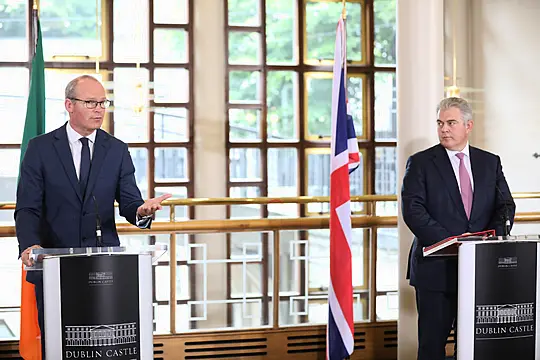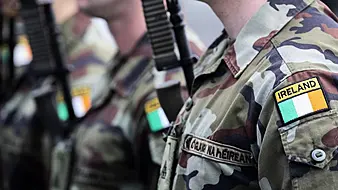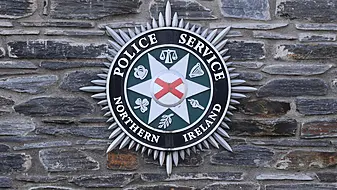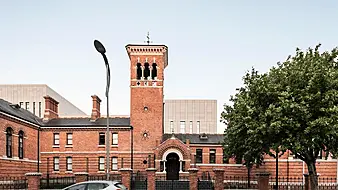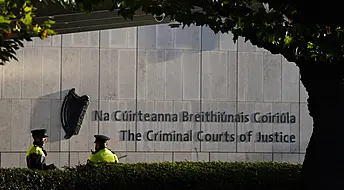Ireland is listening to those who have real concerns about the Northern Ireland Protocol, and “making the case strongly at an EU level for flexibility and pragmatism”, Minister for Foreign Affairs Simon Coveney has said.
He added he hopes progress will be made in the “sausage war” trade dispute between the UK and the European Union in the next week, but there would also have to be “an adherence to what was agreed”.
The UK has applied for an extension to a grace period allowing chilled meats to continue being shipped from Britain to the North after the end of this month, when the current arrangements are due to expire.
Mr Coveney said: “I hope this week that we will see progress between both sides on the request from the British government side for a modest extension to the grace period for chilled meats.
“I hope we’ll be able to see progress on sensitive issues like guaranteeing supplies into Northern Ireland, and also on pets and I hope we can, in the coming weeks and months, also explore positive opportunities around common standards around food production, management and safety.
“This was a good discussion.”
Secretary of State @BrandonLewis and Minister of State @WalkerWorcester have today attended a meeting of the British-Irish Intergovernmental Conference (BIIGC) in Dublin. Full details here: https://t.co/Pf2zrepN0Z pic.twitter.com/J7FyxBDmKB
— Northern Ireland Office (@NIOgov) June 24, 2021
Mr Coveney was speaking after a meeting of the British-Irish intergovernmental conference in Dublin on Thursday, following speculation of a truce in the “sausage war” dispute.
He met with Northern Ireland secretary of state Brandon Lewis.
Mr Coveney said it was the first such meeting since 2019, describing it as a “really important” structure that allows the UK and Irish governments to “work together on issues of mutual interest and concern”, adding they are committing to holding it several times a year going forward.
Mr Lewis said he was hopeful that the EU was being “flexible” in its approach to the trade dispute with the UK Government over chilled meats.
He said: “Obviously we have not had a formal response yet from the EU, so we need to wait to see that formal response. Some technical conversations are ongoing around that.
“Obviously I’m hopeful that they are being flexible and looking at a pragmatic way forward, that would be a good indication.
“We’ll have to see what the detail is when it comes forward and then we can hopefully move forward positively.”
Mr Coveney also said that the Irish Government and the EU were listening to the “anxiety” from some in the North around the Protocol and were trying to respond in a “pragmatic and sensible way”.
He added that the Irish Government had been advocating for more ambition around sanitary and phytosanitary standards, food standards, veterinary standards and a common approach to that from the UK and the EU “which could reduce significantly the number of checks required in airports and airports in Northern Ireland on product coming from GB”.
“I’d like to give a message to people in Northern Ireland that despite the frustration that we’ve heard we are trying to work through the issues where there are solutions,” he said.
“But those solutions require partnership between the British government and the EU together.”
He added: “Hopefully, this week and into next week, if we can get agreement on the chilled meats issue, at least for the temporary extension of that grace period that can be a catalyst for improved relationships and the building up of trust and allow negotiating teams to try to solve some of these other issues over the summer months, because they need to be solved.”
The two governments agreed a process to move forward with legacy issues in the North.
Mr Coveney described the decision as the “most substantive decision of the day”.
He acknowledged concern among some that the Stormont House Agreement structures on dealing with the past are “not as comprehensive as needed”.
He said: “The two governments have agreed to move a process forward together in partnership to reach out to families of victims, to political parties in Northern Ireland and other stakeholders to talk about the way forward on legacy in a way that is open-minded, does not have any predetermined outcome.”
He said the starting point of those discussions is Stormont House but “we’re going to look at how we can develop that in the weeks ahead”.
“This isn’t something that we’re talking about managing for months and months and months, we’re going to move this ahead quickly in partnership, led by the two governments.”
Mr Lewis described the legacy of the North's past as a “hugely complex and sensitive issue”.
He said: “The people of Northern Ireland and beyond went through some tragic circumstances and situations and some abhorrent experiences through the period of the Troubles.
“We’ve got to work together to do everything we can to help Northern Ireland move forward and find a way to move on in dealing with issues around legacy.
“The principles of Stormont House are the principles we want to build on and develop but over the last seven years there are lessons to learn around what we can do and how we can do that.”
